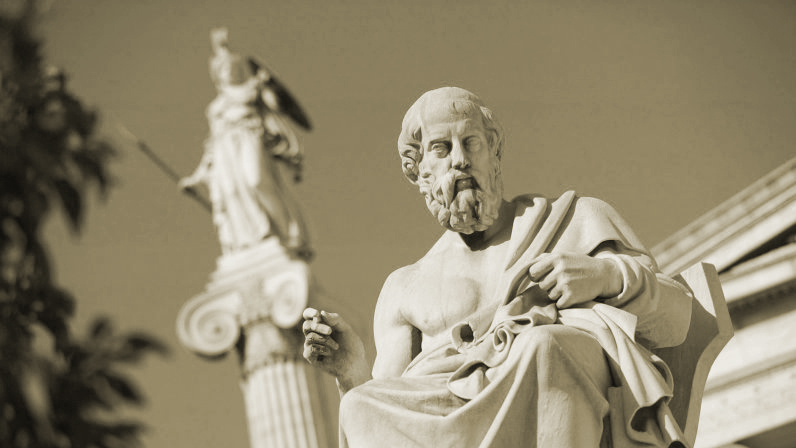
“Puritanical anti-Europe has become exactly what it set out to become: New Zion,” wrote Sebastian Ronin a couple of years ago referring to the US. Regular visitors of this site know that from my point of view the etiology of white decline is, in order of importance: (1) materialism, (2) Christian ethics and (3) Jewish influence. These excerpts from Kerry Bolton’s essay on Yeats in his book Artists of the Right give the idea of the most harmful factor of all:
The rise of industrialism and capitalism during the 19th century brought with it social dislocation, the triumph of the commercial classes and interests, and the creation of an urban proletariat on the ruins of rural life. Smashed asunder were the traditional organic bonds of family and village, rootedness to the earth through generations of one’s offspring, and attunement to the cycles of nature.
With the ascendancy of materialism came the economic doctrines of Free Trade capitalism and Marxism and the new belief in rationalism and science over faith, the mysteries of the cosmos, and the traditional religions. The forces of money had defeated everything of the Spirit. As Spengler explained in his Decline of the West, Western Civilization had entered its end cycle. Such forces had been let loose as long ago as the English Revolution of Cromwell and again by the French Revolution.
There was, however, a reaction to this predicament. The old conservatives had not been up to the task. The spiritual and cultural reaction came from the artists, poets and writers who reach beyond the material and draw their inspiration from the well-springs of what C. G. Jung identified as the collective unconscious. This reaction included not only the political and the cultural but also a spiritual revival expressed in an interest in the metaphysical.
Among the artists in “revolt against the modern world” was the Irish poet William Butler Yeats (1865-1939), leader of the Irish literary renaissance and winner of the Nobel Prize for Literature in 1923. Despite his English and Protestant background, Yeats was involved in the Young Ireland movement, much of his poetry celebrating the Irish rebellion and its heroes.
Yeats had been as a youngster introduced by his father John, himself a Pre-Raphaelite artist, to the paintings of the Pre-Raphaelites, the romantic imagery of which stood then as a rebellion against the encroachments of modernism and industrialism. Having lived in England as a child twenty years before, Yeats was now struck by how much had radically changed under the impress of “progress.” The modern era had even impacted upon the aesthetic of Yeats’ own family, writing of how his father now made his living, and also alluding to the changes being wrought by modernism in art:
It was a perpetual bewilderment that my father, who had begun life as a Pre-Raphaelite painter, now painted portraits of the first comer, children selling newspapers, or a consumptive girl with a basket of fish upon her head, and that when, moved perhaps by memory of his youth, he chose some theme from poetic tradition, he would soon weary and leave it unfinished. I had seen the change coming bit by bit and its defence elaborated by young men fresh from the Paris art-schools. ‘We must paint what is in front of us,’ or ‘A man must be of his own time,’ they would say, and if I spoke of Blake or Rossetti they would point out his bad drawing and tell me to admire Carolus Duran and Bastien-Lepage. Then, too, they were very ignorant men; they read nothing, for nothing mattered but “Knowing how to paint,” being in reaction against a generation that seemed to have wasted its time upon so many things.
For Yeats the mystical was the basis of both his poetry and his political ideas. He was particularly interested in the Irish mystical tradition and folklore. He saw the peasantry and rural values as being necessary to revive against the onslaught of materialism.
Additionally, the “occult” provided a literally hidden culture that was above and beyond the crassness of democracy, of the herd, and of material existence, hence its being termed the “Royal Art,” where again, as in traditional societies over the course of millennia, a priestly caste, at the apex of a hierarchical society, served as the nexus between the terrestrial and the divine, serving as that axis around which High Culture revolves.
Yeats’ poetry was intended as an expression of these symbols of the unconscious and the archetypal. This resurgence of these age-long memories required a “revolt of soul against intellect now beginning in the world.” What is here called “intellect” was the advance of rationalism, scientism, and Enlightenment doctrines that had destroyed man’s nexus with the divine embodied in traditions and hierarchical social orders, and which has repressed man’s spiritual nature in favor of the crassly material.
Yeats, like D. H. Lawrence, Ezra Pound, et al., was particularly concerned that commercialism would mean the pushing down of cultural values in the pursuit of profit rather than artistic excellence. Hence, he called for a revival of aristocratic values. He lamented that, “the mere multitude is everywhere with its empty photographic eyes. A declaration of war on the masses by higher men is called for. Everywhere the mediocre are coming in order to make themselves master.”
His appeal was to the artist and to the individual of taste and culture for, as Nietzsche had pointed out, culture is the faculty that distinguishes the human from other organisms. In this spirit, Yeats applauded Nietzsche’s philosophy as “a counteractive to the spread of democratic vulgarity.”
Yeats’ keen sense of historical context is reflected in “The Curse of Cromwell.” Here he identifies the English Revolution as what we can see as the inauguration of the cycle of “Money over Blood,” in Spenglerian terms: the victory of the merchant class over the traditional order, which was to be re-reenacted in the French Revolution. The Bolshevik Revolution was of the same spirit of money against blood, of the materialistic against the spirit and culture.
All three revolutions were carried out in the name of “the people” against the traditional rulers, only to create a greater tyranny in the service of money. Spengler had written in The Decline of the West: “Practical communism with its ‘class war’… is nothing but the trusty henchman of big Capital, which knows perfectly well how to make use of it… in that their object is not to overcome money-values, but to possess them.”
Cromwell’s English revolution has had lasting consequences for the entire West. The cycle of Money over culture and tradition that Cromwell inaugurated has never been overcome. America was founded on the same Puritan money ethics and continues to spread that spirit over the farthest reaches of the world.
The specter of Puritanism has haunted the entire world ever since, “far and wide.” Nobility of character, regardless of “class”—itself a vulgarization of the traditional castes—was destroyed by the inauguration in the West of the reign of money by Cromwell, and one that was not overcome, but rather adopted by its supposed “enemy,” socialism, as Spengler was to point out. Yeats, as “The Curse of Cromwell” shows, has been one of the few to realize the full depth and lasting significance of Puritanism under whatever name it might appear.
No longer are there left those of noble tradition, those who served as part of a long heritage, “the tall men”; and the old gaiety of the peasant village, the squire’s hall and aristocrat’s manor have been beaten down.
All neighborly, content and easy talk are gone,
But here’s no good complaining, for money’s rant is on.
The artists, once patronized by the aristocracy, must now prostitute their art for the sake of money on the mass market, as script writers, and “public entertainers” to sell a product. All individuals are now producers and consumers, including the artist producing for a consumer market.
And we and all the Muses are things of no account.
Yeats considered himself heir to a tradition that has been repressed by democratic vulgarity, and he lived in service to that tradition, now virtually driven to the catacombs under the dead weight of “mass culture,” which is nothing more than consumerism posturing as “art,” “literature,” and “music” manufactured according to market demands. He and a few others of the same temperament lived in the service of High Culture as contemporary troubadours “against the modern world” to uplift the spirits of the remnant who have managed to maintain their nobility in the face of the crass.
One product of democracy and capitalism that Yeats feared was the proliferation of those he regarded as inferior people. Yeats advocated planned human up-breeding and joined the Eugenics Society at a time when eugenics was a widely held belief among the intelligentsia. Yeats had “On the Boiler” published the same year, where he endorsed the psychometric studies that were showing intelligence to be inherited, and expressed concern at the proliferation of the unintelligent.
The aristocracy of old, the noble lineage of blood, of familial descent, has been replaced by the new rich, the merchants, our new rulers are those who measure all things by profit. Like Spengler, Yeats saw hope in Fascist Italy: “The Ireland that reacts from the present disorder is turning its eyes towards individualist Italy.” In particular, he admired the educational reforms and cyclic historical doctrine of Italian Fascist philosopher and Minister of Education, Giovanni Gentile, stating in 1925 before the Irish Senate, of which he was a member, that Irish teachers should study the methods that Gentile had enacted in Italian schools, “so to correlate all subjects of study.”
The following year Senator Yeats stated that the Italian educational system was “adapted to an agricultural nation” which was applicable also to Ireland, “a system of education that will not turn out clerks only, but will turn out efficient men and women, who can manage to do all the work of the nation.”
With the assumption to Government of De Valera in 1932, the following year Yeats was seeking to formulate a doctrine for Ireland that would be a form of “Fascism modified by religion.” History consisted broadly of “the rule of the many followed by the rule of the few,” again reminiscent of Spengler’s idea of a “new Caesarism” that follows on the rule of plutocracy at the end cycle of a civilization.
For Yeats, the rule of the few meant a return to some form of aristocracy.
 As an American southern nationalist put it in 2012: ‘We invite King George III to come back and resume the throne. He could dissolve the Union, arrest the pretender in the White House [Biden?], and round up our so-called “representatives” in Congress. In exchange for an apology and a promise to never misbehave again, we get lower taxes, a less intrusive government, secure borders, and an end to all the madness that has flowed from the “self evident” idea that “all men are created equal”.’
As an American southern nationalist put it in 2012: ‘We invite King George III to come back and resume the throne. He could dissolve the Union, arrest the pretender in the White House [Biden?], and round up our so-called “representatives” in Congress. In exchange for an apology and a promise to never misbehave again, we get lower taxes, a less intrusive government, secure borders, and an end to all the madness that has flowed from the “self evident” idea that “all men are created equal”.’




